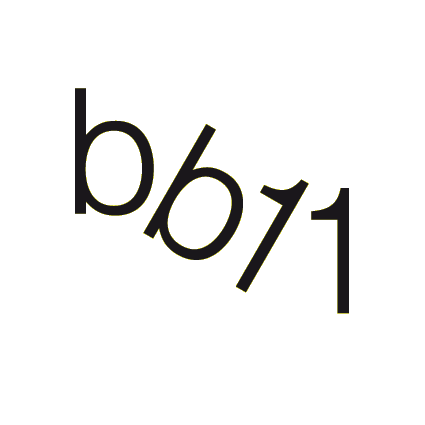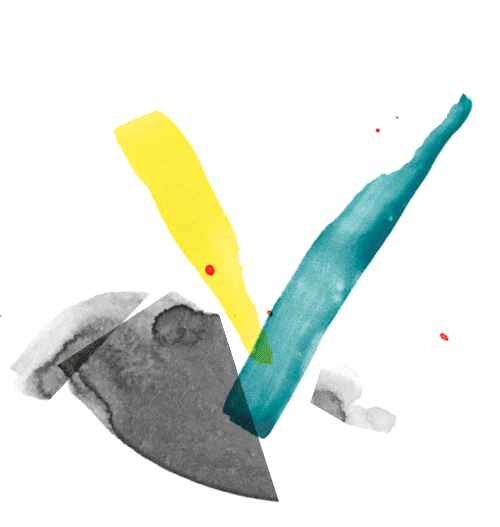

Sign up for our newsletters. You can change the settings or unsubscribe at any time.
Thank you for your subscription. We have sent you an e-mail with a confirmation link.


exp. 1
exp. 2
exp. 3

Queer Ancient Ways advocates a profound unlearning of colonial/modern categories as a pathway to the discovery of new forms and theories of queerness in the most ancient of sources (thereby also unlearning queer theory as it has been understood in contemporary, primarily Anglo-American and western European contexts). In this radically unconventional work, Zairong Xiang investigates scholarly receptions of mythological figures in Babylonian and Nahua creation myths, exposing the ways they have consistently been gendered as feminine in a manner that is not supported, and in some cases actively discouraged, by the texts themselves. An exercise in decolonial learning-to-learn from non-Western and non-modern cosmologies, Xiang’s work uncovers a rich queer imaginary that has been all-but-lost to modern thought, in the process critically revealing the operations of modern/colonial systems of gender/sexuality and knowledge-formation that have functioned, from the Conquista de America in the sixteenth century to the present, to keep these systems in obscurity.
At the heart of Xiang’s argument is an account of the way the unfounded feminization of figures such as the Babylonian (co)creatrix Tiamat, and the Nahua creator-figures Tlaltecuhtli and Coatlicue, is complicit with their monstrification. This complicity tells us less about the mythologies themselves than about the dualistic system of gender and sexuality within which they have been studied, underpinned by a consistent tendency in modern/colonial thought to insist on unbridgeable categorical differences.
By contextualizing these deities in their respective mythological, linguistic, and cultural environments, through a unique combination of methodologies and critical traditions in English, Spanish, French, Chinese, and Nahuatl, Xiang departs from the over-reliance of much contemporary queer theory on European (post)modern thought. Much more than a queering of the non-Western and non-modern, Queer Ancient Ways thus constitutes a decolonial and transdisciplinary engagement with ancient cosmologies and ways of thought which are in the process themselves revealed as theoretical sources of and for the queer imagination.
A Moment of True Decolonization / Episode #6: Sinthujan ...
The Funambulist / Sinthujan Varatharajah
Podcast
Umbilical Cord Amulet
McCord Museum
Object
Hatred Among Us
Lisette Lagnado
Essay
Género y colonialidad en busca de claves de lectura ...
Rita Segato
Essay
THE MOBILIZATION
Nicolás Cuello
Text
IV: How Fear Can Dismantle a Body. Vis-a-Vis with ...
María Berríos, Lisette Lagnado
Conversation
Fragments of the Artist’s Diary, Berlin 11.2019–1.2020
Virginia de Medeiros
Diary
Touching Feeling. Affect, Pedagogy, Performativity
Eve Kosofsky Sedgwick
Monograph
Memorial to the Sinti and Roma Victims of National Socialism
Dani Karavan
Memorial
Struggle as Culture: The Museum of Solidarity, 1971–73
María Berríos
Essay
Expresiones de la locura: el arte de los enfermos mentales
Hans Prinzhorn
Monograph
Teatro da Vertigem
Monograph
A Moment of True Decolonization / Episode #6: Sinthujan Varatharajah. Constructing the Tamil Eelam State
The Funambulist / Sinthujan Varatharajah
Podcast
New Look
Flávio de Carvalho
Performance
Hatred Among Us
Lisette Lagnado
Essay
By using this website you agree to the use of cookies in accordance with our data privacy policy.

Queer Ancient Ways advocates a profound unlearning of colonial/modern categories as a pathway to the discovery of new forms and theories of queerness in the most ancient of sources (thereby also unlearning queer theory as it has been understood in contemporary, primarily Anglo-American and western European contexts). In this radically unconventional work, Zairong Xiang investigates scholarly receptions of mythological figures in Babylonian and Nahua creation myths, exposing the ways they have consistently been gendered as feminine in a manner that is not supported, and in some cases actively discouraged, by the texts themselves. An exercise in decolonial learning-to-learn from non-Western and non-modern cosmologies, Xiang’s work uncovers a rich queer imaginary that has been all-but-lost to modern thought, in the process critically revealing the operations of modern/colonial systems of gender/sexuality and knowledge-formation that have functioned, from the Conquista de America in the sixteenth century to the present, to keep these systems in obscurity.
At the heart of Xiang’s argument is an account of the way the unfounded feminization of figures such as the Babylonian (co)creatrix Tiamat, and the Nahua creator-figures Tlaltecuhtli and Coatlicue, is complicit with their monstrification. This complicity tells us less about the mythologies themselves than about the dualistic system of gender and sexuality within which they have been studied, underpinned by a consistent tendency in modern/colonial thought to insist on unbridgeable categorical differences.
By contextualizing these deities in their respective mythological, linguistic, and cultural environments, through a unique combination of methodologies and critical traditions in English, Spanish, French, Chinese, and Nahuatl, Xiang departs from the over-reliance of much contemporary queer theory on European (post)modern thought. Much more than a queering of the non-Western and non-modern, Queer Ancient Ways thus constitutes a decolonial and transdisciplinary engagement with ancient cosmologies and ways of thought which are in the process themselves revealed as theoretical sources of and for the queer imagination.
A Moment of True Decolonization / Episode #6: Sinthujan ...
The Funambulist / Sinthujan Varatharajah
Podcast
#fight4rojava
Graffiti
Solidarity and Storytelling. Rumors against Enclosure
María Berríos
Essay
Struggle as Culture: The Museum of Solidarity, 1971–73
María Berríos
Essay
IV: How Fear Can Dismantle a Body. Vis-a-Vis with ...
María Berríos, Lisette Lagnado
Conversation
Umbilical Cord Amulet
McCord Museum
Object
Teatro da Vertigem
Monograph
Memorial to the Sinti and Roma Victims of National Socialism
Dani Karavan
Memorial
Museo de la Solidaridad Salvador Allende (MSSA) in Berlin
Conversation
Queer Ancient Ways: A Decolonial Exploration
Zairong Xiang
Monograph
A Moment of True Decolonization / Episode #6: Sinthujan Varatharajah. Constructing the Tamil Eelam State
The Funambulist / Sinthujan Varatharajah
Podcast
El primer nueva corónica y buen gobierno
Felipe Guamán Poma de Ayala
Chronicle
Género y colonialidad en busca de claves de lectura y de un vocabulario estratégico descolonial
Rita Segato
Essay
Touching Feeling. Affect, Pedagogy, Performativity
Eve Kosofsky Sedgwick
Monograph
Grupo Experimental de Cine en acción
Gabriel Peluffo
Drawing
By using this website you agree to the use of cookies in accordance with our data privacy policy.

Queer Ancient Ways advocates a profound unlearning of colonial/modern categories as a pathway to the discovery of new forms and theories of queerness in the most ancient of sources (thereby also unlearning queer theory as it has been understood in contemporary, primarily Anglo-American and western European contexts). In this radically unconventional work, Zairong Xiang investigates scholarly receptions of mythological figures in Babylonian and Nahua creation myths, exposing the ways they have consistently been gendered as feminine in a manner that is not supported, and in some cases actively discouraged, by the texts themselves. An exercise in decolonial learning-to-learn from non-Western and non-modern cosmologies, Xiang’s work uncovers a rich queer imaginary that has been all-but-lost to modern thought, in the process critically revealing the operations of modern/colonial systems of gender/sexuality and knowledge-formation that have functioned, from the Conquista de America in the sixteenth century to the present, to keep these systems in obscurity.
At the heart of Xiang’s argument is an account of the way the unfounded feminization of figures such as the Babylonian (co)creatrix Tiamat, and the Nahua creator-figures Tlaltecuhtli and Coatlicue, is complicit with their monstrification. This complicity tells us less about the mythologies themselves than about the dualistic system of gender and sexuality within which they have been studied, underpinned by a consistent tendency in modern/colonial thought to insist on unbridgeable categorical differences.
By contextualizing these deities in their respective mythological, linguistic, and cultural environments, through a unique combination of methodologies and critical traditions in English, Spanish, French, Chinese, and Nahuatl, Xiang departs from the over-reliance of much contemporary queer theory on European (post)modern thought. Much more than a queering of the non-Western and non-modern, Queer Ancient Ways thus constitutes a decolonial and transdisciplinary engagement with ancient cosmologies and ways of thought which are in the process themselves revealed as theoretical sources of and for the queer imagination.
Grupo Experimental de Cine en acción
Gabriel Peluffo
Drawing
Hatred Among Us
Lisette Lagnado
Essay
Teatro da Vertigem
Monograph
Fragments of the Artist’s Diary, Berlin 11.2019–1.2020
Virginia de Medeiros
Diary
IV: How Fear Can Dismantle a Body. Vis-a-Vis with ...
María Berríos, Lisette Lagnado
Conversation
Maternidades subversivas
María Llopis
Monograph
Glossary of Common Knowledge
L’Internationale Online
Glossary
Touching Feeling. Affect, Pedagogy, Performativity
Eve Kosofsky Sedgwick
Monograph
Struggle as Culture: The Museum of Solidarity, 1971–73
María Berríos
Essay
O Bailado do Deus Morto
Flávio de Carvalho
Play
THE MOBILIZATION
Nicolás Cuello
Text
Glossary of Common Knowledge
L’Internationale Online
Glossary
III: La familia son quiénes se alegran con nuestros actos diarios. Detrás de las curadoras de la XI
María Berríos, Agustín Pérez Rubio
Conversation
Freiheit für Chile!
Anonymous
Photo album
A World Without Bones
Agustín Pérez Rubio
By using this website you agree to the use of cookies in accordance with our data privacy policy.

Queer Ancient Ways advocates a profound unlearning of colonial/modern categories as a pathway to the discovery of new forms and theories of queerness in the most ancient of sources (thereby also unlearning queer theory as it has been understood in contemporary, primarily Anglo-American and western European contexts). In this radically unconventional work, Zairong Xiang investigates scholarly receptions of mythological figures in Babylonian and Nahua creation myths, exposing the ways they have consistently been gendered as feminine in a manner that is not supported, and in some cases actively discouraged, by the texts themselves. An exercise in decolonial learning-to-learn from non-Western and non-modern cosmologies, Xiang’s work uncovers a rich queer imaginary that has been all-but-lost to modern thought, in the process critically revealing the operations of modern/colonial systems of gender/sexuality and knowledge-formation that have functioned, from the Conquista de America in the sixteenth century to the present, to keep these systems in obscurity.
At the heart of Xiang’s argument is an account of the way the unfounded feminization of figures such as the Babylonian (co)creatrix Tiamat, and the Nahua creator-figures Tlaltecuhtli and Coatlicue, is complicit with their monstrification. This complicity tells us less about the mythologies themselves than about the dualistic system of gender and sexuality within which they have been studied, underpinned by a consistent tendency in modern/colonial thought to insist on unbridgeable categorical differences.
By contextualizing these deities in their respective mythological, linguistic, and cultural environments, through a unique combination of methodologies and critical traditions in English, Spanish, French, Chinese, and Nahuatl, Xiang departs from the over-reliance of much contemporary queer theory on European (post)modern thought. Much more than a queering of the non-Western and non-modern, Queer Ancient Ways thus constitutes a decolonial and transdisciplinary engagement with ancient cosmologies and ways of thought which are in the process themselves revealed as theoretical sources of and for the queer imagination.
El primer nueva corónica y buen gobierno
Felipe Guamán Poma de Ayala
Chronicle
New Look
Flávio de Carvalho
Performance
Struggle as Culture: The Museum of Solidarity, 1971–73
María Berríos
Essay
Undocumented Rumours and Disappearing Acts from Chile
María Berríos
Essay
Umbilical Cord Amulet
McCord Museum
Object
Touching Feeling. Affect, Pedagogy, Performativity
Eve Kosofsky Sedgwick
Monograph
Grupo Experimental de Cine en acción
Gabriel Peluffo
Drawing
#fight4rojava
Graffiti
Maternidades subversivas
María Llopis
Monograph
Maternidades subversivas
María Llopis
Monograph
BLM KOREA ARTS
#BlackLivesMatter #BLMKoreaArts
Young-jun Tak
Statement
IV: How Fear Can Dismantle a Body. Vis-a-Vis with two of four curators of the 11th Berlin Biennale
María Berríos, Lisette Lagnado
Conversation
THE MOBILIZATION
Nicolás Cuello
Text
#fight4rojava
Graffiti
Feminist Health Care Research Group
Web archive
By using this website you agree to the use of cookies in accordance with our data privacy policy.
By using this website you agree to the use of cookies in accordance with our data privacy policy.




